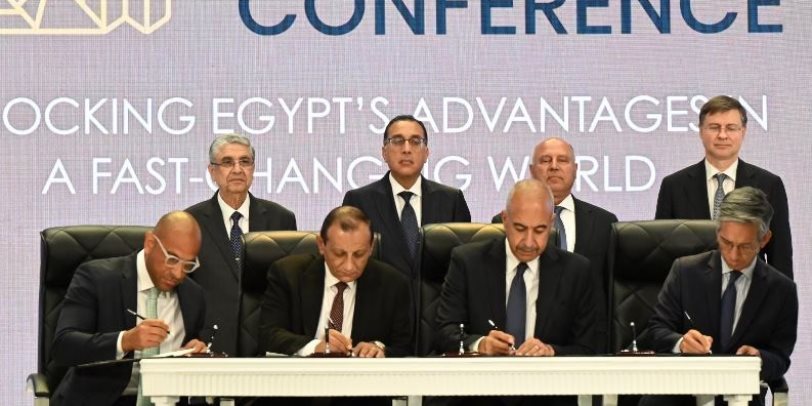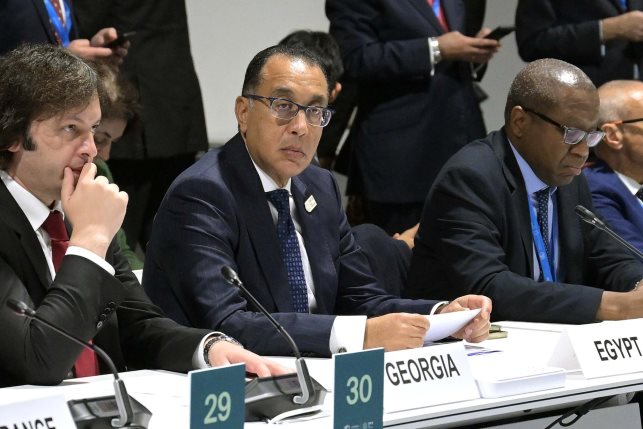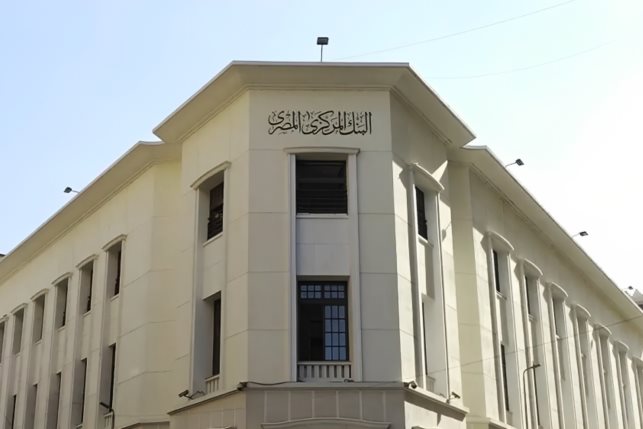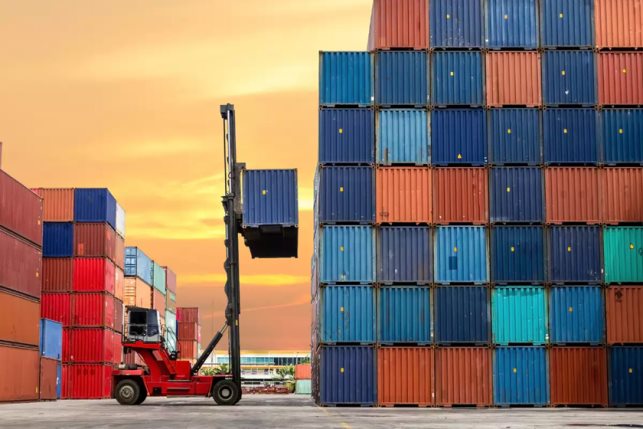Egypt Secures €7 Billion Investment for Green Hydrogen, Ammonia Project
Egypt and EU leaders sign a landmark €7 billion agreement to produce green hydrogen and ammonia.

In a landmark event on the sidelines of the joint Egyptian-European Investment Conference, President Abdel Fattah el-Sisi inaugurated the proceedings alongside European Commission President Ursula von der Leyen.
The conference saw the signing of a pivotal cooperation agreement aimed at producing green hydrogen and its derivatives, including green ammonia, in the Ras Shuqair region.

The signing ceremony was attended by Prime Minister Dr. Mostafa Madbouly, Minister of Electricity and Renewable Energy Dr. Mohamed Shaker, Minister of Transport Kamel El-Wazir, and European Commission Executive Vice-President Valdis Dombrovskis, Commissioner for Trade.
The agreement, involving the Red Sea Ports Authority and the New and Renewable Energy Authority, was inked with a consortium of EDF Renewables (France) and Zero Waste (a joint Egyptian/Emirati venture).
Minister of Transport Kamel El-Wazir emphasized that this initiative aligns with presidential directives to localize the green hydrogen industry, optimize the investment climate, and position Egypt as a regional and global energy hub. The project is expected to significantly boost sustainable development by localizing green hydrogen production and attracting major corporations to establish similar ventures.
Minister El-Wazir noted the project's unique nature, highlighting that the state is not required to provide any infrastructure or utilize electricity grid facilities for the project, nor does it bear any financial commitments.
This rare investment, typically driven by the private sector, demands substantial financial and technical capability and is characterized by long-term returns, spanning approximately fifty years. The Ministry of Transport will coordinate with relevant ministries and authorities to finalize legal procedures and obtain necessary approvals.
The economic impact of the project includes direct revenues from service fees, project licensing, land usage fees for wind and solar power stations, green hydrogen and ammonia production facilities, and export tonnage taxes, all payable in US dollars.
Additionally, indirect benefits include job creation in construction and operations, with the project set to produce over one million tons of green ammonia annually.
The EDF Renewables and Zero Waste consortium will invest €2 billion in the first phase, with the total project cost across three phases estimated at €7 billion. A preliminary feasibility study has identified the required land: 420 km² for renewable energy generation in Ras Shuqair and 1.2 million m² for the production facility, along with a 7 km electricity transmission corridor.
The project will also finance and develop a 400-meter quay for the Red Sea Ports Authority, complete with a 17-meter draft and all necessary utilities, alongside constructing a desalination plant for project water needs.
This project is part of global efforts to transition to clean energy and enables Egypt to meet its commitments under the Paris Agreement and COP27 by reducing carbon emissions locally and globally.
It aims to position Egypt as a regional energy hub amidst international competition to localize this promising industry, which offers benefits like renewable power generation, green fuel production, and significant reductions in greenhouse gas emissions.
Furthermore, the project is expected to create hundreds of thousands of jobs during development, construction, and operational phases, generating substantial annual export revenues.
The establishment of a new Red Sea port under the Red Sea Ports Authority, without financial burden on the state, will also foster the gradual localization of supporting industries (electrolyzers, solar panels, wind turbines).
Additionally, the project will provide green fuel for ships transiting the Suez Canal, meeting evolving global maritime standards, reducing pressure on natural gas reserves, and offering alternative fuels to support industrial growth. The project's operating company will ensure the training of Egyptian workers, aiming to achieve a 95% domestic workforce.
This ambitious venture underscores Egypt's commitment to advancing sustainable energy solutions and economic diversification, reinforcing its position as a leading player in the global green energy landscape.





